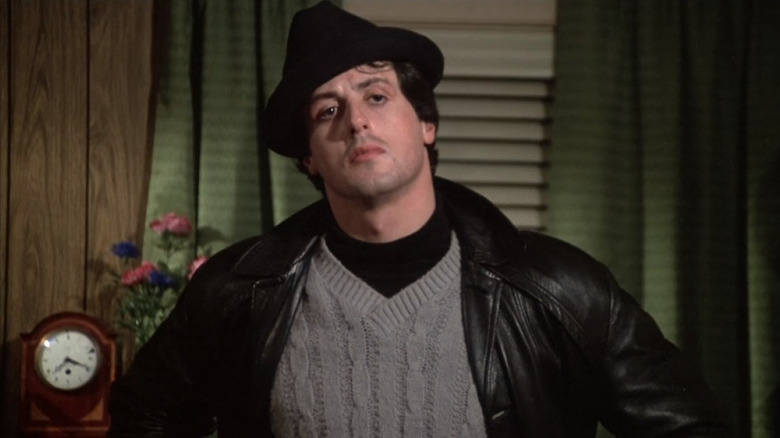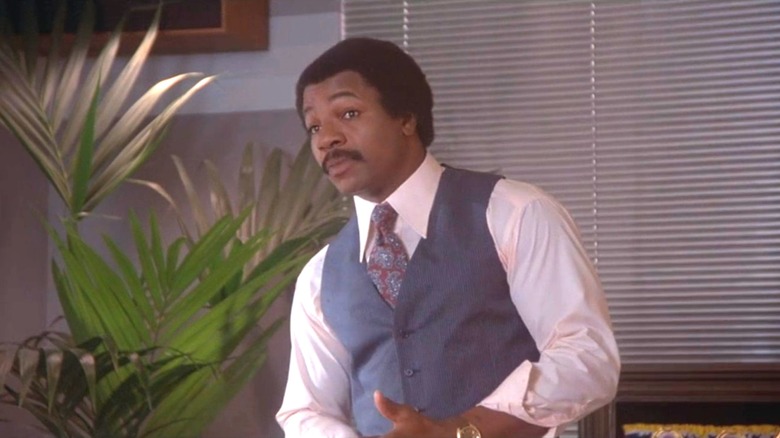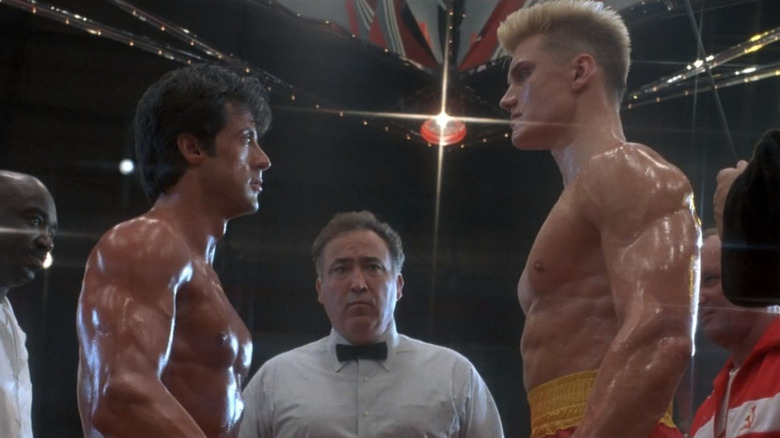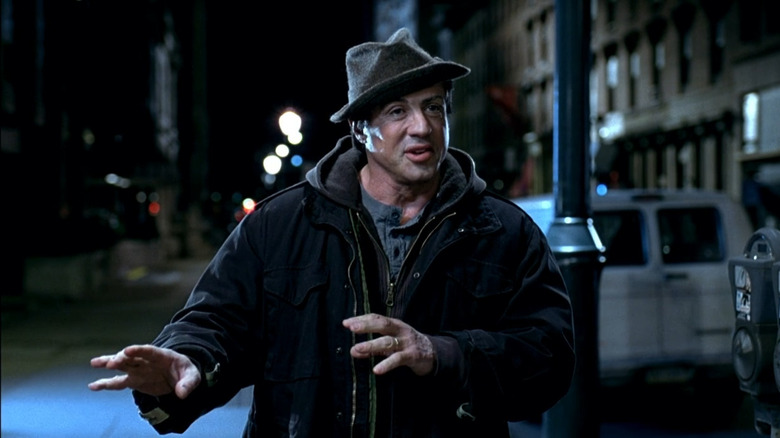Rocky Movies Are About Boomers Confronting Race, Gender & Death, Says One Theory
Sylvester Stallone is one of the premier action stars of his generation. He has embodied what it means to be a tough guy in a world where tough guys are needed. While many action heroes have that one legacy character they will be remembered for (Arnold Schwarzenegger has the Terminator, and Bruce Willis has John McClane), Stallone has three: John Rambo, Barney Ross, and Rocky Balboa. While all these characters' movies have something we can take from them, the last of the three may contain lessons for the boomer generation.
u/geoffsebesta took to Reddit to posit a unifying theory of what the movies put on display for the baby boomers. It reads, "If you watch the 'Rocky' movies in succession (as I have admittedly done on multiple occasions), you can discover what the baby boomers have feared most over the past three decades: 'Rocky': Black men; 'Rocky II': Black men and feminism; 'Rocky III': Angry black men and the death of their parents; 'Rocky IV': Russians/Communism; 'Rocky V': Getting old; 'Rocky Balboa': Getting old and losing touch with their kids."
The responses to the theory added a few other themes that are prevalent in the films, such as wasted potential, leaving a legacy, and Reaganism. If we do a deep dive into the films and their themes, there seem to be three two-movie phases displaying what people in Sly's generation dealt with.
The first two films are about potential and race tension
The first two movies of the "Rocky" franchise see the down-on-his-luck fighter randomly selected to face off against the champion of the world in an exhibition match where he goes the distance with the greatest fighter on Earth. The sequel sees the champion angry that he didn't demolish the unknown fighter and set up a rematch that eventually loses him the title. The two films show a true rags-to-riches story in which hard work and heart can take you to success.
The themes of the first film show a man who is barely scraping by in a life where he works as an enforcer for a crime boss. Before Apollo Creed (Carl Weathers) gives him the chance of a lifetime to capture the dream of any fighter, he is clearly a man who falls short of his potential. On the surface, it seems like a sermon on classism as the rich fighter making millions uses his money and influence to give himself a leg up on the poor everyman who has to pull himself up by his bootstraps. If you look deeper, you may see that it is a representation of what baby boomers feared in the '70s, a successful Black man.
The second film shows Rocky unable to hold down a job while Adrian (Talia Shire) begs him not to fight. She has to work while she is pregnant, and he tells her not to, but she does anyway and gets hurt. Rocky displays all the resistance to feminism and women in the workplace that boomers did at the time.
Rocky III and Rocky IV are about the boomers' changing world
The next two films see Rocky Balboa transition from an unknown fighter realizing his potential to a man living in an ever-changing world. The universe stops giving him things and starts taking things from him. As people get older, those around them begin to get older, and life feels more fragile. Rocky learns this the hard way as he loses two different people in his life while also facing a new global foe.
The first person he loses is his mentor and trainer, Mickey (Burgess Meredith). After his death, Rocky starts to lose motivation and give up. His old adversary, Apollo, steps up to train him, and the two form a brotherly bond. "Rocky IV" sees him lose Apollo, and he has to use all he learned from the two late mentors to return to fighting form. He consistently deals with grief and loss, as any aging person feels they have to.
There is another theme that works like a time capsule to the '80s when we see Rocky go up against Ivan Drago (Dolph Lundgren). Pitting the American against the giant Soviet echoes America facing off against the USSR at the height of the Cold War, playing on the fears of the people at the time. "Rocky III" begins the subtle hints at this when Balboa discovers Mickey has been ducking good fighters to protect his image and face him against people he knows he can beat. It dismantles his protected bubble, something that boomer Americans felt during the Cuban Missile Crisis and the spread of communism as the Soviet Union became the villain of their age during the Cold War.
Rocky V and Rocky Balboa are about a legacy
Finally, the fifth and sixth films see an older Balboa start to face the fears many boomers experience as they get older. A retired Rocky sees new fighters talk about how they could defeat the man in his prime. He also goes from fighter to trainer when he attempts to impart his wealth of knowledge and wisdom to another, only to be let down by his new protégé.
Additionally, he faces the prospect of losing his wife and drifting from his son. As people begin to get older, they start their own families and move beyond the relationships of their childhoods. Rocky experiences this with his own son, Rocky Jr. (Milo Ventimiglia). His attempt to mentor Tommy Gunn (Tommy Morrison) feels like a failed father-son relationship. It seems that the last two films spend the majority of their time showing him trying to leave a legacy that goes beyond boxing.
"Rocky" is a cultural staple that has endured for decades. We see Balboa go from an unknown fighter looking for a shot to a sage mentor. While on the surface, it looks to be a straightforward story of an aging fighter, there is also clear evidence that this franchise drifts more into boomer sermon territory.



